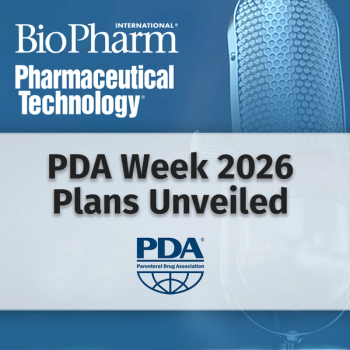
Sponsored Podcasts

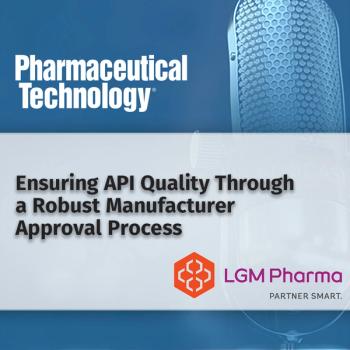
In the current industry landscape, API quality can make or break a drug product. LGM Pharma stands out by treating supplier relationships as strategic partnerships rather than transactions. In this interview with Pharmaceutical Technology, Shailesh Vengurlekar and Diem Hoang share LGM’s rigorous, multi-step process for evaluating, approving, and continuously monitoring API manufacturers—highlighting the company’s collaborative approach that prioritizes transparency, and patient safety.

As a recognized leader in immunophenotyping for clinical trials, Kevin Lang from PPD discusses how spectral flow cytometry is transforming drug development, particularly in cell and gene therapies like CAR-T. He also dives into his award-winning research, including his 2024 WRIB Poster Award-winning work, and his insights from presenting at AAPS PharmSci360.
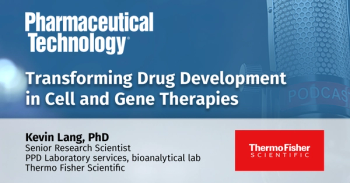
As a recognized leader in immunophenotyping for clinical trials, Kevin Lang from PPD discusses how spectral flow cytometry is transforming drug development, particularly in cell and gene therapies like CAR-T. He also dives into his award-winning research, including his 2024 WRIB Poster Award-winning work, and his insights from presenting at AAPS PharmSci360.
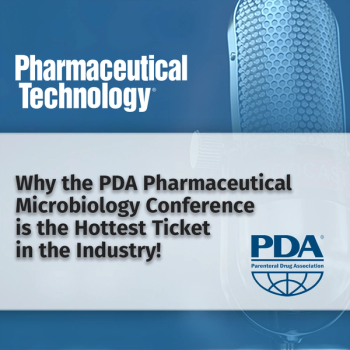
Get a glimpse of the power and popularity behind the PDA Pharmaceutical Microbiology Conference from two planning committee members, Julia Marre, PhD (Associate Director, Scientific and Regulatory Affairs at Pocket Naloxone Corp) and Dawn Watson (Executive Director, Global Micro Quality and Sterility Assurance at Merck). This candid conversation reveals why this industry event is so influential…and always sold out! The speakers discuss what makes the PDA Pharmaceutical Microbiology Conference so vital to industry professionals, as well as how to become a part of this dynamic professional community.
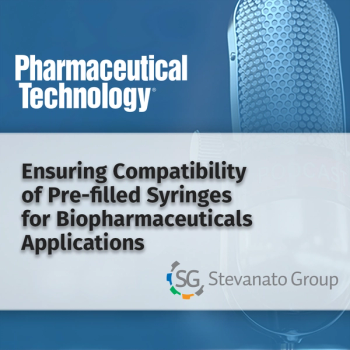
There is not a syringe solution that fits all challenges. In this Podcast, Enrico Barichello, Product Manager for Syringe Platform in Stevanato Group, and Alan Xu, Product Manager for Analytical Services in Stevanato Group's Technology Excellence Centers, discuss the best strategies to select the right pre-filled syringe (PFS) based on the key needs of combination products and illustrate how introducing analytical services from an early stage can help customers reach the market faster by avoiding costly product revalidations or reformulations. Don’t miss out on the opportunity to be part of the conversation driving the PFS industry forward.
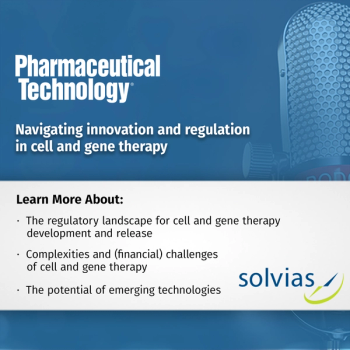
Join this insightful dialogue where we’ll explore advancements in the evolving world of cell and gene therapy analysis with Daniel Galbraith, Chief Scientific Officer of Solvias. Daniel shares insights from the forefront of drug development, including the complexities of development and commercialization, the financial dynamics of new therapies and changing regulatory landscapes. This podcast provides an enlightening conversation about the dynamic cell and gene therapy analysis space and provides a unique look at the innovations driving the industry forward.
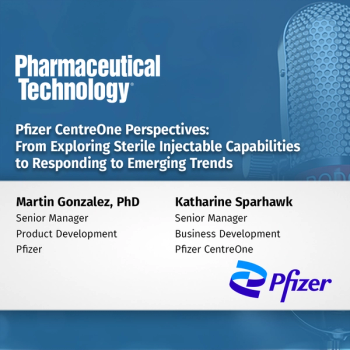
In this podcast, hear from our global experts Martin Gonzalez, PHD and Katharine Sparhawk as they share exclusive details of Pfizer CentreOne’s sterile injectable capabilities from both a technical expertise and business development point of view. Our experts will explore key topics including emerging sterile injectable trends, the company’s approach to flexibility in capacity planning and emerging trends that are shaping the development of complex biologics like ADCs.
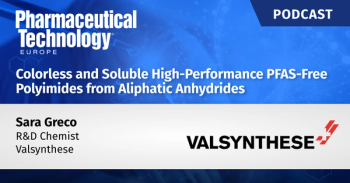
Polyimide materials, as Kapton®, are widely used for flexible electronics substrates or as insulators, thanks to their wide range of thermal stability as well as excellent dielectric and mechanical properties. However, there are limitations in their processability and employment in new technologies due to their low solubility and deep amber staining, resulting from charge transfer interactions established between polymer rigid chains. Currently, researchers are focusing on designing resins with excellent thermal and chemical stability, transparent and colorless with a high processability in terms of viscosity and solubility. However, balancing among all those properties for this class of materials remains a big challenge today, as some of these properties seem to exclude others. In this episode, the focus will be on aliphatic anhydrides, which play a key role for the final polyimide’s properties enhancement. This will be explained by B.Sc. Sara Greco, a chemist working on this topic (as part of her master's thesis) in the R&D department of Valsynthese, a Swiss CDMO specialized in hazardous chemistry.
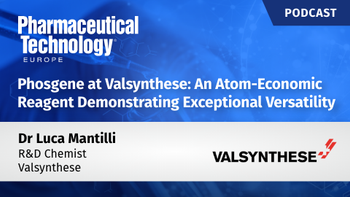
Dr. Luca Mantilli, R&D chemist at Valsynthese, the fine chemical unit of the Sociét�é Suisse des Explosifs Group (SSE), will guide you through the journey that Valsynthese as CDMO has done in phosgenation. The advantages and synthetic possibilities of phosgene, an extremely versatile reagent, will be highlighted with respect to other alternatives, same as the safety measures needed when working with such hazardous building blocks.

Jet milling is a well-established particle engineering technique for producing micronized powders with controlled particle size distribution and increased surface area. This makes them suitable for inhalation drug delivery. However, successful implementation of jet milling requires a robust Quality by Design (QbD) approach that ensures the critical quality attributes of the micronized particles are maintained throughout the process development. This episode will cover the principles and intricacies of the jet milling process. It will also highlight some of the challenges when micronizing for inhalation delivery, and give some possible solutions. A case study will demonstrate a reliable process development strategy using a QbD approach for micronizing nilotinib, an API with potential for the treatment of severe chronic asthma. It will highlight the significance of implementing a QbD approach, and its benefits in process development. Overall, this presentation aims to provide valuable insights into the jet milling process and QbD approach for inhalation drug delivery and their potential applications in drug development.
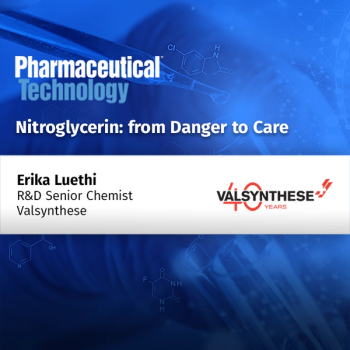
Dr. Erika Lüthi, R&D Senior Chemist at Valsynthese, the Fine Chemical Unit of Société Suisse des Explosifs Group, will take you through the evolution of Nitroglycerin, from its explosives origins to pharmaceutical applications. Nitroglycerin has been produced at SSE for over 125 years in a safely way and adapting its use to increasingly noble purposes.
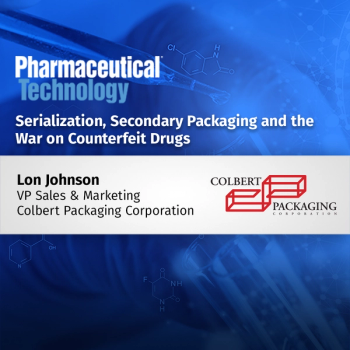
Join us for this informative session as expert, Lon Johnson of Colbert Packaging, shares industry insights on serialization and security in packaging – its history, current state, and the oncoming expectations in the war on counterfeit drugs.

Baxter BioPharma Solutions latest $100M investment in Baxter’s Halle/Westfalen, Germany facility
In this podcast, Kayleigh Hearse, Sr Mgr. Technical Projects, Capacity Expansion Pharma Production shares details of Baxter BioPharma Solution’s approximately $100 million expansion of its sterile fill/finish manufacturing facility located in Halle/Westfalen, Germany. Kayleigh explains many of the key attributes of the new building, key learnings and major considerations that took place throughout the planning phase.
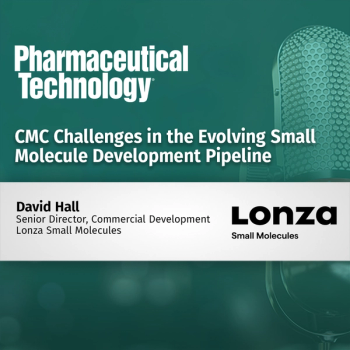
A growing proportion of drugs in the development pipeline nowadays start out life at small biotech companies, rather than big pharma businesses. While this means the biotechs are taking on more risk, they will also reap greater rewards in the event of success. When it comes to choosing your CDMO partner, there is no substitute for a careful selection process to determine the right CDMO to make and manage your precious potential drug. In this podcast, David Hall, Senior Director, Commercial Development at Lonza Small Molecules, provides insights on how small and emerging pharmaceutical and biotech companies can navigate the evolving pharma development pipeline.

Wurster Fluid Bed Coating is one of the most utilized processes for microencapsulation of fine particles in pharmaceutical, dietary supplement, food, and other industries. Jared McDonald walks through a brief history of the invention of the process, what it is, and how it can be used to address specific needs for a product. A discussion of the importance of choosing an experienced CDMO follows.
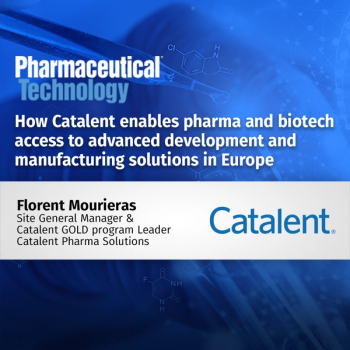
How Catalent enables pharma and biotech access to advanced development and manufacturing solutions in Europe.
Catalent’s recent completion of a $30 million (€27 million) project at its facility in Limoges, France, transformed the site into a European center of excellence for biopharmaceutical development, drug product fill/finish services, and packaging. The site further expand Catalent Biologics’ global network, with early phase integrated clinical development through to clinical supply services and small-scale commercial manufacturing, allowing seamless tech transfer of projects as they progress to late-stage and larger-scale commercial supply from other Catalent manufacturing facilities in Europe and North America.
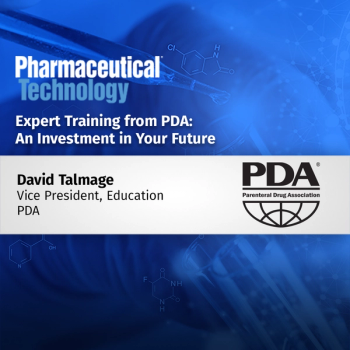
Built on a reputation of excellence and founded in science, PDA training provides new and experienced professionals around the world with practical information and implementable solutions on essential industry topics related to the manufacturing science, regulation, and technology of drug products and substances. Our trainers are world-class experts with years of hands-on experience in their respective fields. Whether you are employed in industry, government, or academia, PDA has training that will benefit you!
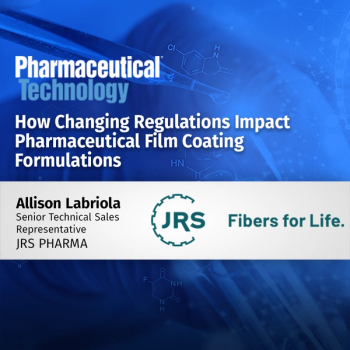
Allison Labriola, Senior Technical Sales Representative, at JRS Pharma is interviewed by the Editorial Director of Pharmaceutical Technology Chris Spivey about how the food industry is affecting the pharmaceutical industry.
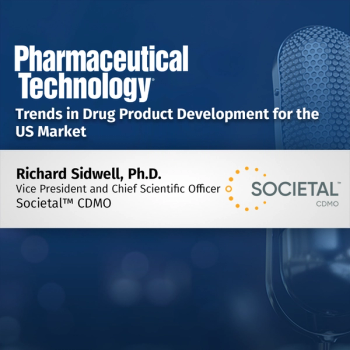
If you’re in the business of pharmaceutical product development or manufacturing for the US market, this brief talk by Dr. Richard Sidwell is for you. The need for pharmaceutical products is higher than ever. At the same time, the ability to develop and supply new products is being constrained by demographics, geopolitics, energy, and inflation. This is why it’s more important than ever to strategically invest in CMC development and engineering, onshoring, and thoughtful supply chain design. Dr. Sidwell discusses recent trends in drug product development and manufacturing given the current demographic, geopolitical, and macroeconomic trends.
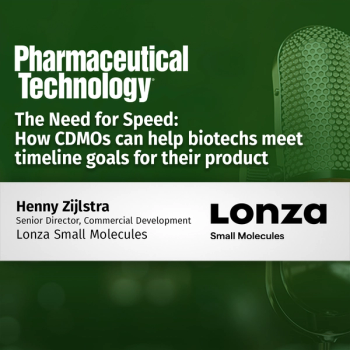
The Need for Speed: How CDMOs can help biotechs meet timeline goals for their product pipeline
Drug development is a complicated process, with a huge number of processes and activities required to bring a drug successfully to market. How can an integrated CDMO help a small biotech move a project into and through the clinic, and onto the market? In this podcast, Henny Zijlstra, Senior Director, Commercial Development at Lonza, details why is it faster and more efficient to work with a single supplier.
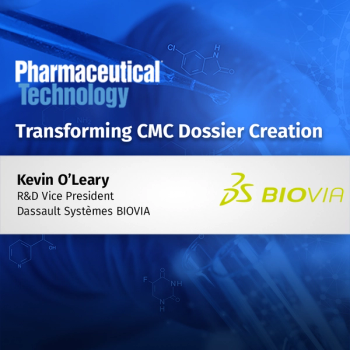
Through the adoption of a data driven and automated CMC Dossier generation process, pharmaceutical companies can reduce time-to-market while delivering significant cost savings to the organization. Eliminate errors, duplicate data entry and verification, create a digital chain of evidence and significantly reduce time spent on CMC authoring.
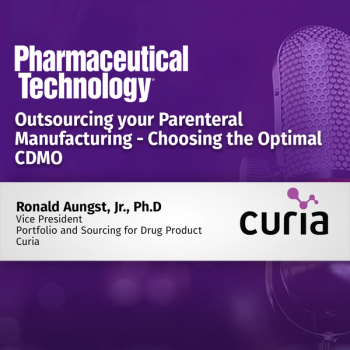
You have your drug substance and need a parenteral formulation to administer it. This podcast will focus on the key factors to consider when choosing the ideal parenteral manufacturing CDMO partner.
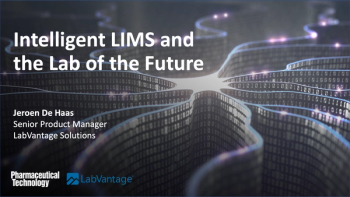
Jeroen De Haas, Senior Product Manager at LabVantage Solutions discusses how advanced analytics such as AI are moving into the lab, helping biopharmaceutical organizations draw far greater actionable insights from a broader array of data. Intelligent LIMS leveraging these advanced analytics are at the heart of a lab’s digital transformation.
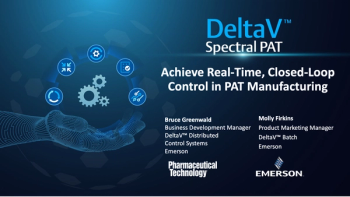
In a new podcast titled, “DeltaV™ Spectral Process Analytical Technology (PAT): Achieve Real-Time, Closed-Loop PAT in Manufacturing,” find out how embedding PAT directly into the control system enables life sciences manufacturers to take a simplified approach to achieving real-time manufacturing, compliance with confidence, greater ROI and delivery of quality treatments to market faster.

Join Christian Jones, CCO of Nanoform, as he discusses what it truly means to be patient-centric in the modern pharmaceutical industry. Discover the challenges pharma companies are facing as they switch focus, as well as the actions and technologies companies are implementing to help achieve a brighter future for patients.
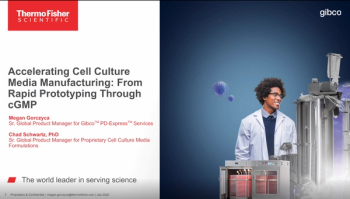

Samsung Biologics is responding to industry challenges with various development projects and services that improve overall timelines and efficiencies when manufacturing new medicines.
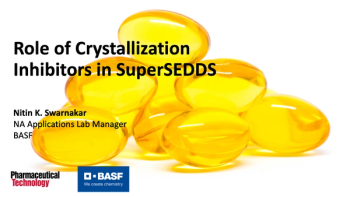
Crystallization inhibitors maintain super saturation of free drug during the absorption window upon oral administration. Formulators can achieve this by utilizing function excipients which provide solubilization enhancement and crystallization inhibition. We recently used the inhibitors to limit precipitation of drugs during the lipolysis of SEDDS and correlated with the Vivo performance. Additionally, these functional inhibitors effectively increased drug load and improved overall bioavailability by forming supersaturated-SEDDS. This podcast will cover the role of crystallization inhibitors in formulation and how to use in SEDDS formulation effetely.
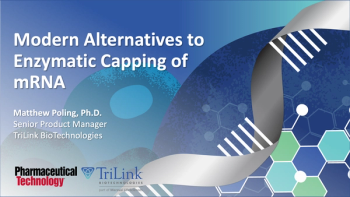
For companies looking to bring mRNA therapeutics and vaccines to market, TriLink’s proprietary GMP-grade CleanCap® reagents offer an immediate solution for swiftly scaling from clinical to commercial. CleanCap technology is the fastest and easiest way to produce a 5’ Cap1 mRNA with 95% efficiency. GMP CleanCap reagents are a modern alternative to enzymatic capping and are ready to accelerate your mRNA therapeutic development. In this podcast, we will discuss how TriLink discovered this mRNA capping method and how they made it scalable to support global vaccine supply, as a key raw material for over 3 billion vaccines doses against COVID-19.